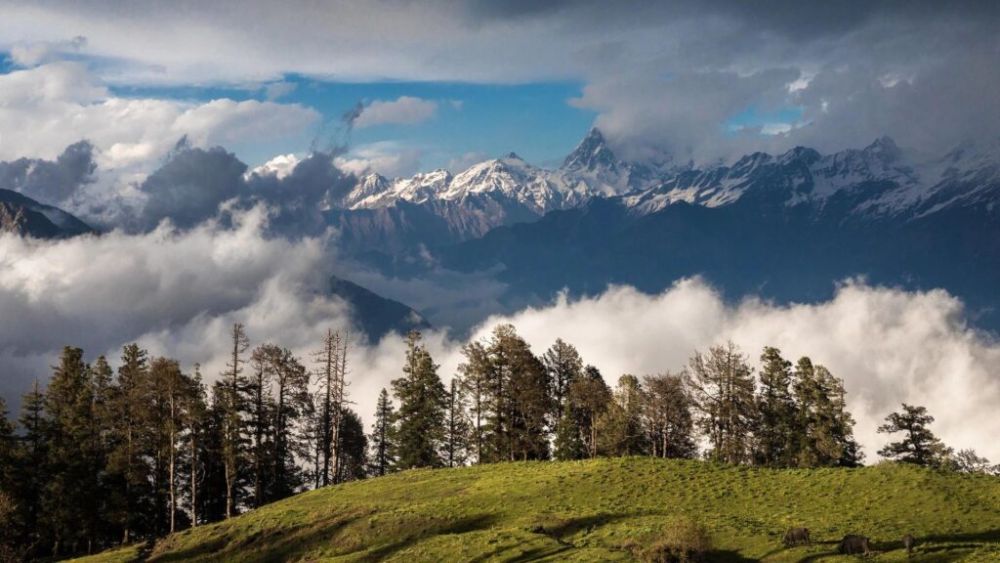

Nestled in the northern part of India, Uttarakhand is a state known for its captivating Himalayan beauty, sacred rivers, and spiritual significance. The history of tourism in Uttarakhand goes back to ancient times when it was a prominent part of the region known as Kedarkhand and Manaskhand, referring to regions that are now famous for the Kedarnath and Mansarovar pilgrimages, respectively.
Historically, Uttarakhand has been a destination for pilgrims due to its religious sites such as Haridwar, Rishikesh, and the Char Dham – Yamunotri, Gangotri, Kedarnath, and Badrinath. This region is deeply ingrained in the Hindu mythology and has been a revered site for millennia, drawing pilgrims and ascetics to its holy places.
The onset of British colonial rule saw the development of certain regions in Uttarakhand as hill stations, with Mussoorie and Nainital being prime examples, favored by the British for their pleasant climate. These places became summer retreats for British officials and later, for the Indian elite.
Post-India’s independence in 1947, Uttarakhand – then part of the state of Uttar Pradesh – continued to grow in spiritual and ecological significance. The formation of Uttarakhand as a separate state on November 9, 2000, gave a new impetus to its tourism sector. Recognizing its potential, the state government invested in improving infrastructure, leading to better connectivity, accommodation, and facilities for travelers.
In recent years, Uttarakhand has become a hotspot for adventure tourism. Activities like white-water rafting, trekking, skiing, and mountaineering attract adventure enthusiasts. The Valley of Flowers and Nanda Devi National Park, both UNESCO World Heritage Sites, are famous for trekking and rich biodiversity.
With the rise of eco-conscious travel, Uttarakhand has embraced eco-tourism, promoting homestays, organic farming, and conservation efforts. Wellness retreats leveraging Ayurveda, Yoga, and meditation, particularly in Rishikesh, known as the 'Yoga Capital of the World', have also become increasingly popular.
Amidst the COVID-19 pandemic, tourism trends shifted towards more secluded and private spaces, leading to the rise of boutique hotels and luxury stays in remote locations. Additionally, spiritual tourism received a boost as people seek holistic experiences and personal wellbeing. Virtual tourism also emerged, allowing people to experience Uttarakhand's grandeur from their homes.
The journey from a spiritual haven and colonial hill stations to a hub for adventure and eco-tourism illustrates the rich and evolving history of tourism in Uttarakhand. The state continues to balance development with environmental conservation, striving to offer diverse experiences to visitors from around the globe.